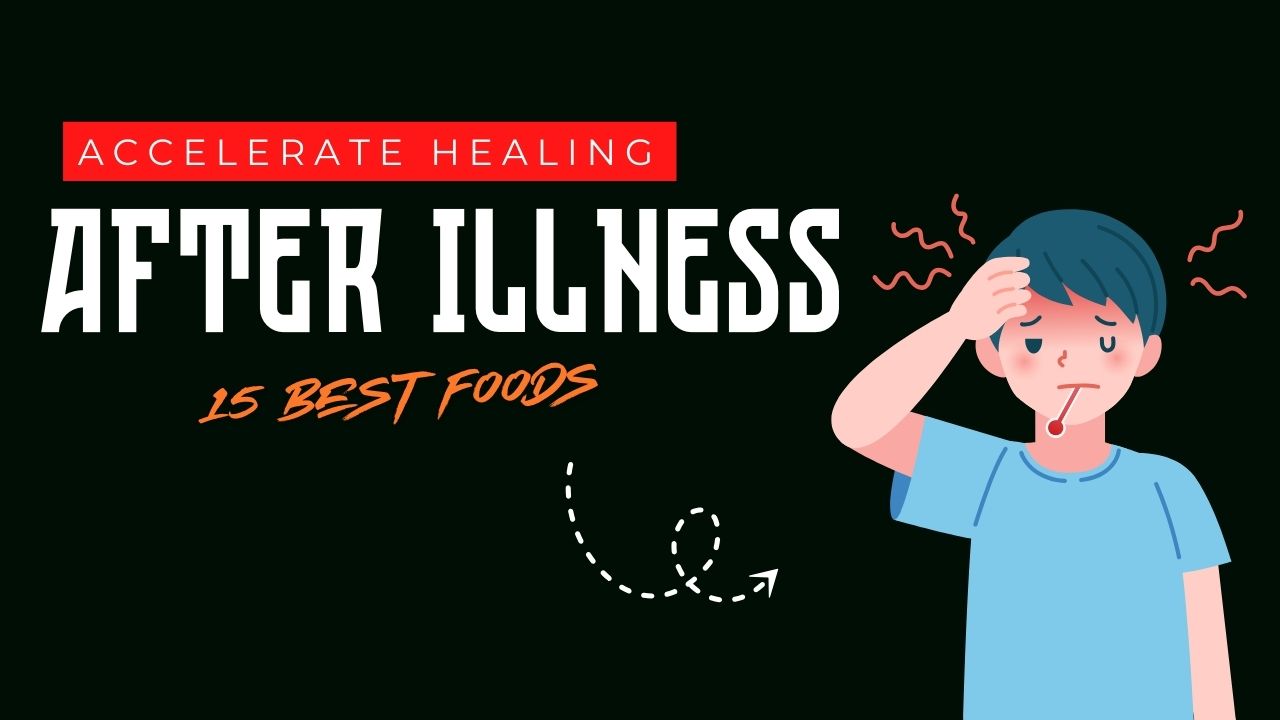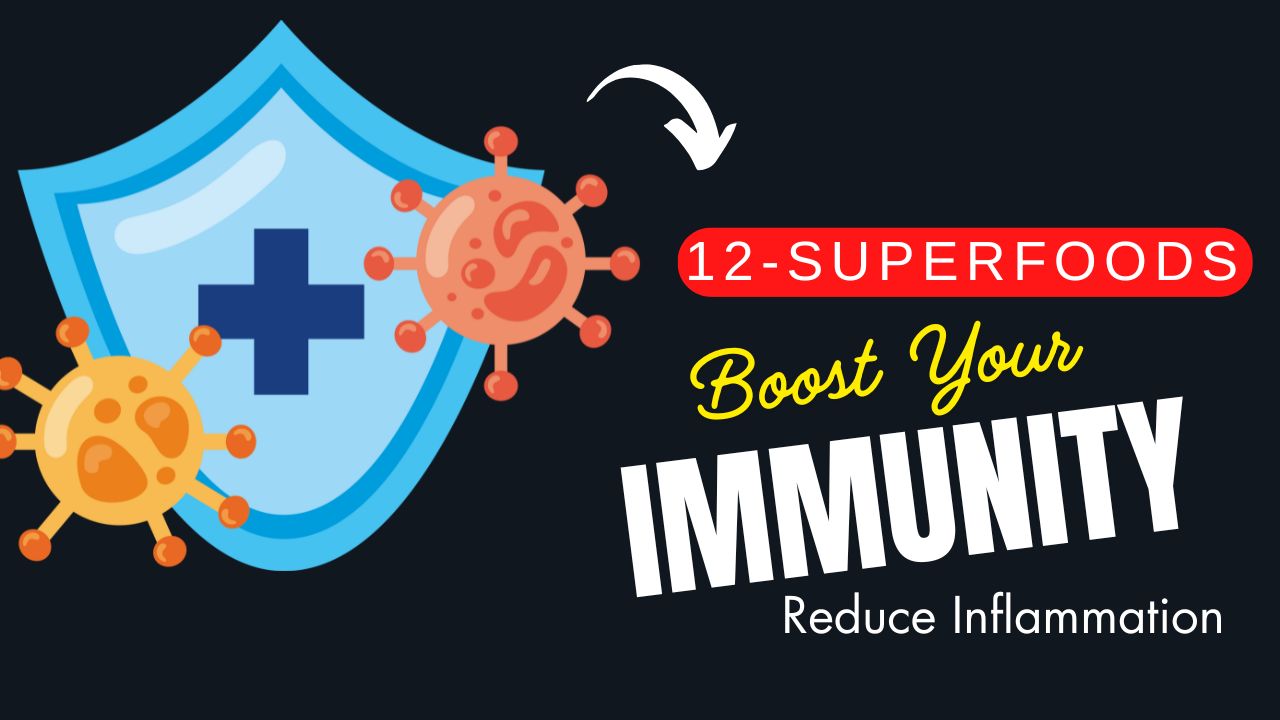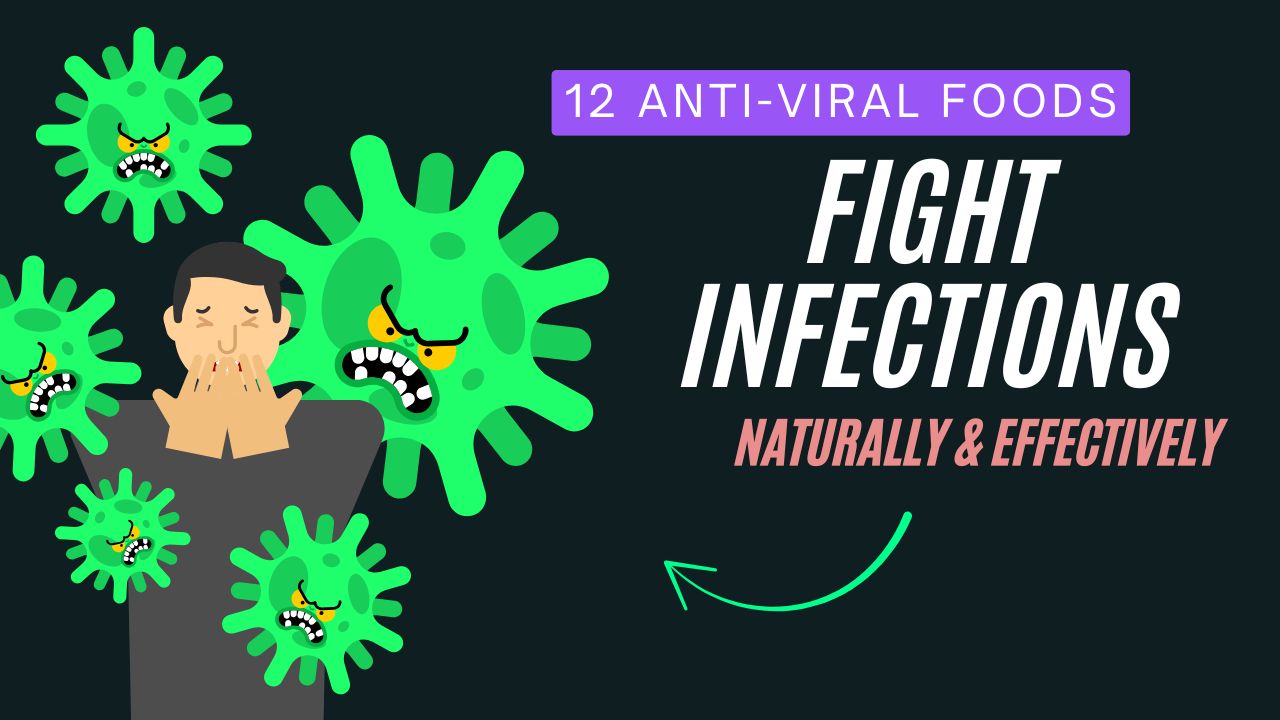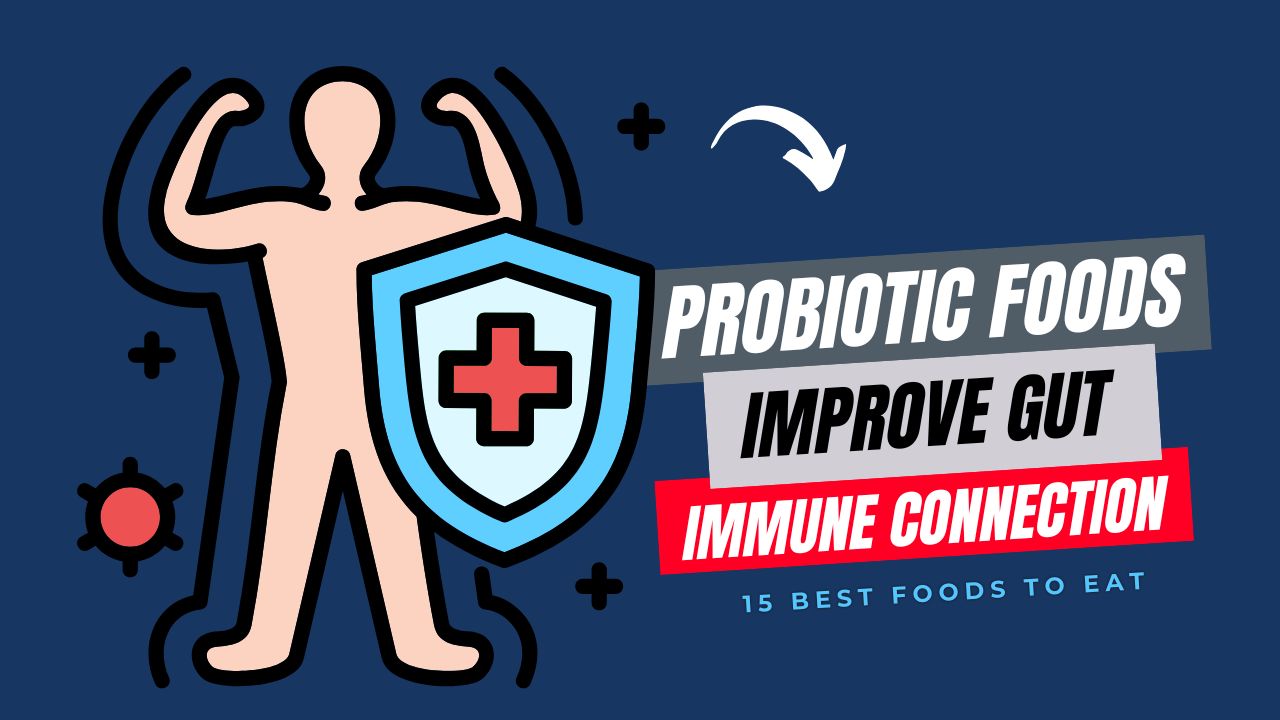Do you ever feel like your mood, energy, or skin changes suddenly without a clear reason? For many women, these ups and downs are often linked to hormones.
Hormones are powerful chemical messengers that control everything from metabolism and reproduction to stress response and sleep. When they fall out of balance, you might notice irregular periods, stubborn weight gain, fatigue, or even digestive problems.
Here’s an eye-opening fact: certain foods can act almost like natural medicine by supporting your body’s hormone production, detoxification, and balance. In fact, research shows that what you eat can either fuel hormonal chaos or restore harmony.
This post covers 15 foods that regulate female hormones naturally, how to include them in your meals, who should eat or avoid them, and the best storage tips. You’ll also find practical do’s and don’ts, possible side effects, and ways to make the most of these hormone-balancing superfoods.
Let’s dive into the foods that can help women feel more energized, balanced, and in control.
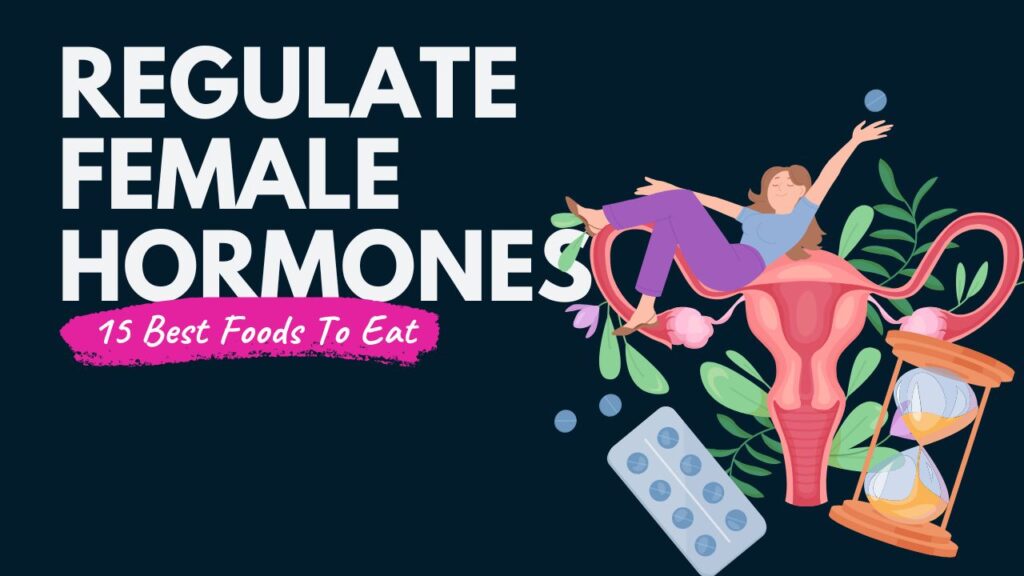
Table of Contents
Best Foods That Regulate Female Hormones
1. Flaxseeds
Flaxseeds are rich in lignans, a type of phytoestrogen that helps balance estrogen levels, especially in women with low or high estrogen dominance.
Best Ways to Eat or Use It:
- Add ground flaxseeds to smoothies, oatmeal, or yogurt.
- Use as an egg substitute in baking.
- Sprinkle on salads for extra crunch.
Who Should Eat / Avoid:
- Good for: women with irregular cycles, menopausal symptoms, and digestive issues.
- Avoid if: you have flaxseed allergy or blood-thinning medication (consult your doctor).
Storage & Buying Tips:
- Buy whole seeds and grind them fresh to prevent rancidity.
- Store in an airtight container in the fridge.
Do’s & Don’ts:
✅ Do: consume ground flaxseeds for better absorption.
❌ Don’t: heat flax oil at high temperatures.
Possible Side Effects:
- Excess intake may cause bloating or digestive discomfort.
2. Broccoli
Cruciferous vegetables like broccoli contain indole-3-carbinol, which supports estrogen metabolism and reduces the risk of estrogen dominance.
Best Ways to Eat or Use It:
- Lightly steam or roast for maximum nutrient retention.
- Blend into green smoothies.
- Add to stir-fries with garlic and olive oil.
Who Should Eat / Avoid:
- Good for: women with PCOS, endometriosis, or PMS symptoms.
- Avoid if: thyroid issues are unmanaged (as raw cruciferous can interfere with thyroid function).
Storage & Buying Tips:
- Choose firm, bright green florets.
- Store in a perforated bag in the fridge for up to 5 days.
Do’s & Don’ts:
✅ Do: eat with healthy fats like olive oil for nutrient absorption.
❌ Don’t: overcook until mushy (destroys antioxidants).
Possible Side Effects:
- May cause gas or bloating if eaten in excess.
3. Salmon
Rich in omega-3 fatty acids, salmon helps reduce inflammation, supports progesterone production, and regulates stress hormones like cortisol.
Best Ways to Eat or Use It:
- Grilled, baked, or pan-seared with herbs.
- Add to salads or wraps.
- Enjoy smoked salmon occasionally.
Who Should Eat / Avoid:
- Good for: women with menstrual pain, anxiety, or fertility goals.
- Avoid if: you’re allergic to fish or need to limit mercury intake (choose wild-caught).
Storage & Buying Tips:
- Fresh salmon should smell mild, not fishy.
- Store in fridge for up to 2 days or freeze.
Do’s & Don’ts:
✅ Do: pair with lemon for vitamin C absorption.
❌ Don’t: deep fry (destroys omega-3s).
Possible Side Effects:
- Overconsumption may lead to excess calorie intake.
4. Avocados
Avocados are hormone-friendly fats that support estrogen and progesterone production while stabilizing blood sugar.
Best Ways to Eat or Use It:
- Mash on whole-grain toast.
- Blend into smoothies for creaminess.
- Use as a base for dressings or dips.
Who Should Eat / Avoid:
- Good for: women with irregular periods, low energy, or skin issues.
- Avoid if: you’re allergic or on a strict low-fat diet.
Storage & Buying Tips:
- Buy firm ones and ripen at room temperature.
- Refrigerate once ripe to extend shelf life.
Do’s & Don’ts:
✅ Do: eat with leafy greens for nutrient synergy.
❌ Don’t: waste the pit—it helps keep cut avocados fresh.
Possible Side Effects:
- Too much may cause weight gain due to calorie density.
5. Eggs
Eggs provide high-quality protein, vitamin D, and choline, which are essential for fertility and hormone regulation.
Best Ways to Eat or Use It:
- Boiled, scrambled, or poached.
- Add to salads or grain bowls.
- Use in baking as a natural binder.
Who Should Eat / Avoid:
- Good for: women with fertility concerns, athletes, and busy moms.
- Avoid if: you have egg allergies or high cholesterol concerns (consult doctor).
Storage & Buying Tips:
- Buy pasture-raised or organic for higher nutrients.
- Store in refrigerator.
Do’s & Don’ts:
✅ Do: eat whole eggs (yolk has most nutrients).
❌ Don’t: rely only on egg whites.
Possible Side Effects:
- Overeating may affect cholesterol in sensitive individuals.
6. Berries (Blueberries, Raspberries, Strawberries)
Packed with antioxidants, berries reduce oxidative stress that disrupts hormone production.
Best Ways to Eat or Use It:
- Fresh as snacks.
- Blend into smoothies.
- Add to oatmeal or chia pudding.
Who Should Eat / Avoid:
- Good for: women with PMS, skin issues, or weight management.
- Avoid if: prone to acid reflux.
Storage & Buying Tips:
- Buy firm, brightly colored berries.
- Store in fridge, wash only before use.
Do’s & Don’ts:
✅ Do: freeze for year-round use.
❌ Don’t: wash too early (causes mold).
Possible Side Effects:
- Overeating may cause stomach upset due to fiber.
7. Walnuts
Walnuts are omega-3 rich nuts that improve brain health, balance cortisol, and support fertility.
Best Ways to Eat or Use It:
- Snack on a handful daily.
- Add to salads, baked goods, or trail mix.
- Blend into walnut butter.
Who Should Eat / Avoid:
- Good for: women with stress, PCOS, or irregular cycles.
- Avoid if: nut allergies.
Storage & Buying Tips:
- Buy unsalted and unroasted.
- Store in airtight containers in the fridge.
Do’s & Don’ts:
✅ Do: soak for easier digestion.
❌ Don’t: buy pre-shelled in bulk (turns rancid).
Possible Side Effects:
- High-calorie, so moderation is key.
8. Turmeric
This golden spice contains curcumin, a powerful anti-inflammatory that helps balance estrogen and reduces PMS pain.
Best Ways to Eat or Use It:
- Add to curries, soups, or golden milk.
- Use in smoothies with black pepper for absorption.
Who Should Eat / Avoid:
- Good for: women with painful periods or inflammation.
- Avoid if: pregnant without doctor’s advice or on blood thinners.
Storage & Buying Tips:
- Store powder in airtight container away from sunlight.
- Fresh root keeps in fridge for 2 weeks.
Do’s & Don’ts:
✅ Do: combine with healthy fats for better absorption.
❌ Don’t: overconsume—it can cause nausea.
Possible Side Effects:
- Excess amounts may upset stomach.
9. Greek Yogurt
Greek yogurt is rich in probiotics, calcium, and protein—all vital for hormone balance. Probiotics help support gut health, which directly influences estrogen and cortisol regulation.
Best Ways to Eat or Use It:
- Eat plain as a snack or breakfast base.
- Blend into smoothies for creaminess.
- Use as a substitute for sour cream in dips and sauces.
Who Should Eat / Avoid:
- Good for: women with digestive issues, PCOS, or those needing more protein.
- Avoid if: lactose intolerant or allergic to dairy (opt for plant-based probiotic yogurts instead).
Storage & Buying Tips:
- Buy unsweetened, full-fat Greek yogurt for maximum benefits.
- Keep refrigerated and consume within a week of opening.
Do’s & Don’ts:
✅ Do: add fruits, seeds, or nuts for a nutrient boost.
❌ Don’t: choose artificially sweetened or flavored versions.
Possible Side Effects:
- May cause bloating in women sensitive to dairy.
10. Dark Chocolate
Dark chocolate (70% cocoa or higher) is a magnesium-rich food that helps reduce stress hormones and support serotonin production.
Best Ways to Eat or Use It:
- Enjoy a small square as a daily treat.
- Melt and drizzle over fruits.
- Blend into smoothies or healthy desserts.
Who Should Eat / Avoid:
- Good for: women with PMS, stress, or low energy.
- Avoid if: sensitive to caffeine or migraines triggered by chocolate.
Storage & Buying Tips:
- Store in a cool, dry place away from sunlight.
- Choose organic, fair-trade varieties.
Do’s & Don’ts:
✅ Do: savor in moderation (1–2 small squares).
❌ Don’t: choose milk chocolate (high sugar, low nutrients).
Possible Side Effects:
- Overconsumption can cause digestive upset and weight gain.
11. Pumpkin Seeds
Pumpkin seeds (pepitas) are loaded with zinc and magnesium, which support progesterone production and regulate the menstrual cycle.
Best Ways to Eat or Use It:
- Snack on roasted seeds.
- Sprinkle over salads, soups, or oatmeal.
- Blend into seed butter.
Who Should Eat / Avoid:
- Good for: women with irregular periods, PMS, or fertility concerns.
- Avoid if: allergic to seeds.
Storage & Buying Tips:
- Buy raw, unsalted seeds for versatility.
- Store in airtight containers in fridge to prevent rancidity.
Do’s & Don’ts:
✅ Do: pair with vitamin C-rich foods to boost mineral absorption.
❌ Don’t: buy pre-flavored seeds with added sugars.
Possible Side Effects:
- Overeating may cause mild stomach upset.
12. Lentils
Lentils are rich in plant-based protein, fiber, and iron, supporting blood sugar stability and thyroid function.
Best Ways to Eat or Use It:
- Cook into soups, curries, or stews.
- Add to salads for extra protein.
- Use as a base for veggie burgers.
Who Should Eat / Avoid:
- Good for: vegetarians, women with PCOS, and those needing more iron.
- Avoid if: you struggle with legume sensitivity or digestive discomfort.
Storage & Buying Tips:
- Buy dried lentils in bulk and store in airtight jars.
- Cooked lentils last up to 5 days in the fridge.
Do’s & Don’ts:
✅ Do: soak lentils before cooking for easier digestion.
❌ Don’t: rely only on lentils for protein—balance with variety.
Possible Side Effects:
- May cause bloating if consumed in large amounts without soaking.
13. Green Tea
Green tea is packed with catechins and antioxidants that support liver detoxification and balance estrogen metabolism.
Best Ways to Eat or Use It:
- Brew hot or iced green tea.
- Add lemon for better antioxidant absorption.
- Matcha is another potent option.
Who Should Eat / Avoid:
- Good for: women with PCOS, high stress, or weight management goals.
- Avoid if: sensitive to caffeine, pregnant (in excess), or with iron-deficiency anemia (drink between meals).
Storage & Buying Tips:
- Buy loose-leaf or high-quality tea bags.
- Store in airtight container away from light.
Do’s & Don’ts:
✅ Do: sip 2–3 cups daily for best results.
❌ Don’t: drink on an empty stomach (can cause nausea).
Possible Side Effects:
- Excess may cause insomnia or stomach irritation.
14. Sweet Potatoes
Sweet potatoes are a complex carb rich in vitamin A and fiber, which support progesterone and regulate blood sugar.
Best Ways to Eat or Use It:
- Bake, roast, or mash.
- Add to Buddha bowls or grain salads.
- Use as a base for healthy desserts.
Who Should Eat / Avoid:
- Good for: women with irregular cycles, fertility concerns, or thyroid health.
- Avoid if: you have kidney stones (high oxalate content).
Storage & Buying Tips:
- Store in a cool, dark, dry place (not fridge).
- Choose firm, smooth-skinned potatoes.
Do’s & Don’ts:
✅ Do: eat with skin for extra fiber.
❌ Don’t: deep fry (adds unhealthy fats).
Possible Side Effects:
- Overeating may cause blood sugar spikes in diabetics.
15. Olive Oil
Olive oil is a cornerstone of the Mediterranean diet, full of monounsaturated fats that reduce inflammation and stabilize hormone production.
Best Ways to Eat or Use It:
- Drizzle over salads, roasted veggies, or whole grains.
- Use as a base for dressings and marinades.
- Add to soups for richness.
Who Should Eat / Avoid:
- Good for: women seeking heart health, reduced PMS pain, and overall balance.
- Avoid if: you have olive allergies (rare).
Storage & Buying Tips:
- Choose extra virgin olive oil (cold-pressed).
- Store in a dark glass bottle away from heat and light.
Do’s & Don’ts:
✅ Do: use raw or at low-medium heat.
❌ Don’t: store near the stove (causes rancidity).
Possible Side Effects:
- Excess intake may cause calorie surplus.
16. Leafy Greens (Spinach, Kale, Swiss Chard)
Leafy greens are rich in magnesium, folate, and fiber—essential for estrogen detox and reducing PMS symptoms.
Best Ways to Eat or Use It:
- Add fresh to salads or smoothies.
- Lightly sauté with garlic and olive oil.
- Blend into soups or grain bowls.
Who Should Eat / Avoid:
- Good for: women with anemia, PMS, or fertility concerns.
- Avoid if: prone to kidney stones (oxalates may worsen condition).
Storage & Buying Tips:
- Buy crisp, dark green leaves without yellowing.
- Store wrapped in paper towel in fridge.
Do’s & Don’ts:
✅ Do: eat raw and cooked for variety.
❌ Don’t: let leaves sit wet (causes spoilage).
Possible Side Effects:
- Excess raw greens may interfere with thyroid function.
Conclusion
Hormonal balance isn’t achieved overnight—it’s a daily commitment to nourishing your body with the right foods.
From flaxseeds and broccoli to olive oil and leafy greens, these 15 hormone-regulating foods are powerful allies for women’s health. They can help reduce PMS, improve fertility, support thyroid function, and even stabilize moods.
Instead of thinking of them as “diet foods,” view them as natural tools to help your body function at its best. Rotate them throughout your meals, combine them wisely (like broccoli with olive oil or flaxseeds in yogurt), and pay attention to how your body responds.
Your action step: Next time you plan your meals, try including at least three of these hormone-friendly foods in your day. Over time, you’ll notice improvements in energy, mood, and overall well-being.
What about you? Have you tried any of these foods to support your hormones? Share your experience or your favorite recipe in the comments!
Frequently Asked Questions (FAQs)
Can food really help regulate female hormones?
Yes. Certain foods contain nutrients like healthy fats, fiber, antioxidants, and phytoestrogens that support hormone production, detoxification, and balance. While food alone can’t fix severe hormone disorders, it plays a major role in maintaining overall hormonal health.
How long does it take to notice changes from eating hormone-balancing foods?
This varies by individual. Some women may notice improvements in energy, mood, or menstrual symptoms within a few weeks, while others may need several months of consistent dietary changes.
Are these foods safe during pregnancy?
Most foods listed, like leafy greens, salmon, and sweet potatoes, are safe and beneficial during pregnancy. However, some foods like flaxseeds, green tea (due to caffeine), and large amounts of turmeric should be consumed with caution—always consult your doctor first.
Can men also eat these hormone-balancing foods?
Absolutely. While the article focuses on women’s hormones, these foods support overall endocrine function, fertility, energy, and metabolic health for both men and women.
Are supplements better than whole foods for hormone balance?
Whole foods are generally better since they provide a synergistic mix of nutrients and fiber. Supplements can help if you have specific deficiencies, but they should complement, not replace, a balanced diet.
Which food is the best for balancing female hormones?
There’s no single “best” food, but flaxseeds, salmon, leafy greens, and avocados are among the top choices because they directly support estrogen, progesterone, and cortisol balance.
Are there any foods women should avoid for hormonal health?
Yes. Highly processed foods, refined sugars, excessive caffeine, alcohol, and trans fats can disrupt hormonal balance by causing inflammation, insulin spikes, or liver overload.
Do hormone-balancing foods help with menopause symptoms?
Yes. Foods rich in phytoestrogens (like flaxseeds and soy), omega-3s (like salmon and walnuts), and antioxidants (like berries) may reduce hot flashes, mood swings, and bone loss during menopause.
Can I eat all these foods every day?
It’s not necessary to eat all 15 foods daily. Aim for variety throughout the week to cover a wide range of nutrients. Balance and moderation are key.
Will eating these foods cure PCOS or thyroid issues?
No single food can “cure” conditions like PCOS or thyroid disorders. However, incorporating hormone-friendly foods can support management of symptoms and improve overall well-being alongside medical treatment.





